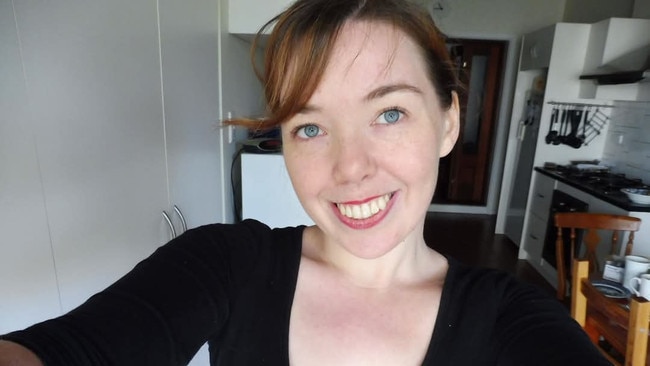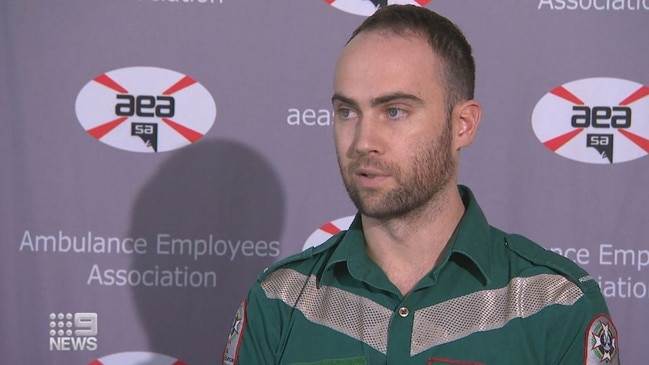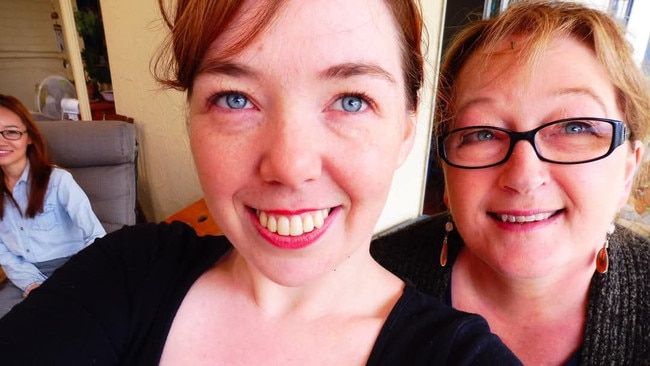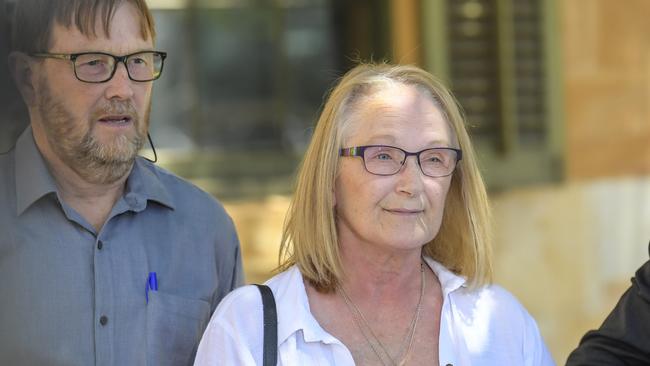Ambulance officer James Murchland tell inquest he never saw stroke symptom in Kate Marie Sylvia
A paramedic has told an inquest into a young stroke woman’s death he never saw a “red-flag” symptom – but never planned to leave her alone.
SA News
Don't miss out on the headlines from SA News. Followed categories will be added to My News.
A paramedic treating a woman suffering from the early stages of a fatal blood clot said she did not exhibit clear symptoms when he arrived, a coronial inquest has heard.
On Thursday, the coronial inquest into the death of Kate Marie Sylvia continued before Deputy State Coroner Naomi Kereu.
The court heard paramedic James Murchland did not pass on that Kate’s mother, Kathryn Jean Sylvia, had told paramedics her daughter “had trouble talking” because his assessment minutes later conflicted with that symptom.
The coroner asked paramedic Mr Murchland if “conflicting information” from his patient history file should have been passed on.


“With hindsight, I would say yes (it should have been passed on), but I think the practicality of this is that, when you’re getting multiple conflicting accounts, often, you can only report what you see,” Mr Murchland said.
“Why would that (information) be onerous to pass on?” Ms Kereu said.
“(Paramedics) frequently have to sift through every job for what’s relevant and what’s not, and so to go, ‘she was having trouble talking’, ‘she wasn’t’, they’re (the receiving hospital or clinic) just going to be like, it seems that you’ve got a very confused understanding of what’s going on,” Mr Murchland said.

The court heard Mr Murchland had co-ordinated with a health navigator for Kate to be transferred to a priority care clinic, but when contact failed they elected to try the Hospital Avoidance & Supported Discharge Service at Sefton Park.
The court heard the clinic did not initially pick up the phone, and Kate was going to be transported to the Queen Elizabeth Hospital because Mr Murchland “never” leaves a patient with a headache at home.
Mr Murchland said the HASDS clinic then answered the phone and accepted Kate as a patient, and the health navigator informed him to take her there.
The court also heard paramedics now liaise directly with clinics such as HASDS.

The inquest previously heard from Dr Lyall Henderson, who treated Kate initially at HASDS, who said he would have sent her to emergency if he knew vital information.
During the opening of the inquest, Mrs Sylvia gave evidence that her daughter had just started taking the pill, and a doctor at the Royal Adelaide Hospital said it was likely the cause of her blood clot.
Kate, who was originally from Millicent and worked in the Pembroke Middle School Library, is remembered as a “kind, sweet” woman who was “dedicated” and did not let her dyspraxia hold her back in life.
The coronial inquest continues.
More Coverage
Originally published as Ambulance officer James Murchland tell inquest he never saw stroke symptom in Kate Marie Sylvia





